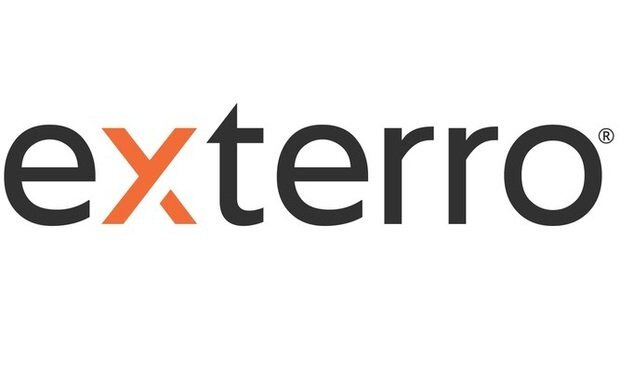A contract contains a forum selection clause in State X. Plaintiff brings suit in State Y, requiring Defendant to incur unwarranted fees and expenses. Will Plaintiff be required to pay Defendant’s attorney’s fees for breach of this seemingly miscellaneous provision? The answer may vary based on state law and the language in the contract. In New York, despite strong enforcement of the American Rule, courts have awarded attorneys’ fees for breach of miscellaneous provisions. In California, however, fees for breach of a miscellaneous provision may be denied if the fee-requesting party does not ultimately prevail. You will draft miscellaneous contract provisions from various jurisdictions for your fantasy contract and earn points based on the strength of your draft clauses, incorporating suggestions from the panelists. Earn the most points to be crowned best fantasy contract drafter.
A recent letter from 21 state Attorneys General to various asset managers demonstrates a focus on using antitrust and unfair competition laws to oppose ESG efforts. In this Client Alert, Latham & Watkins attorneys review the major enforcer and congressional statements over the past year that have raised antitrust and competition concerns with ESG initiatives; analyze how the AG Letter reflects a refinement of theories of harm under state and federal competition laws; and provide guidance to entities implementing ESG policies on how to minimize legal risks.
Read this article for an overview of the Act and related rulemaking, and to learn how to cope with the changes wrought by the Sarbanes-Oxley Act of 2002.
In Hong Kong, investors may carry on businesses through various types of business<br />vehicles, such as sole proprietors, partnerships or companies.
Members of ACC's Litigation Committee share their experiences of how developing vital relationships early during their in-house career resulted in fewer challenges for them and their company. Discusses choice of outside counsel, budgeting for litigation, managing client expectations, building a litigation team and understanding your company's insurance coverage.
China is operating increasingly on a cashless basis, with the Chinese government posed to launch a digital currency called Digital Currency Electronic Payment (DCEP or “digital yuan”). This article provides a holistic overview and answers several key questions pertaining to the DCEP.
This Wisdom of the Crowd, compiled from questions and responses posted on the Employment & Labor Forum, addresses the implications of allowing an employee from a U.S. company to telecommute from Spain.
This Wisdom of the Crowd, compiled from questions and responses posted on the ACC Employment & Labor Law eGroup, addresses the feasibility of legal departments creating an internal library of information to advise and counsel clients.
This guide provides corporate counsel and international practitioners with comprehensive jurisdiction-by-jurisdiction guidance to public procurement laws and regulations around the world.
This InfoPAK discusses the role of the general counsel in the United States, Canada and Europe. The purpose of this InfoPAK is to provide some definition of the role, scope and nature of the duties of a general counsel in a globalized, post-Enron, post-Parmalat, post-Satyam Sarbanes-Oxley world, further battered by a worldwide recession the likes of which have not been seen for more than a generation. By noting some of the issues that arise in the ordinary course of an inhouse counsel’s practice, this InfoPAK will help general counsel provide high-quality representation for their corporate client.
The National People Congress passed the Personal Information Protection Law ("PIPL") in China, effective November 1, 2021. This resource is an overview of the PIPL, including significant challenges it poses to companies' personal data practices.
The US Supreme Court’s decision in Dobbs v. Jackson Women’s Health Organization, has created profound uncertainty for individuals and entities attempting to navigate a web of inconsistent and often conflicting federal and state laws. One key question is the impact of individual state laws on the provision of health-related services or benefits across state lines, particularly where state laws provide for criminal liability.
The US Equal Employment Opportunity Commission (EEOC) and US Department of Justice (DOJ) have announced plans to monitor employers’ use of artificial intelligence (AI) tools in hiring decisions that may discriminate against applicants with disabilities. On May 12, 2022, both agencies issued guidance outlining areas for concern regarding the use of AI in hiring decisions, which provide some insight into their intentions for litigation.
Preparing for 2023: Tools and Tips to be Ready for New US Privacy Laws (On-Demand)
Preparing for 2023: Tools and Tips to be Ready for New US Privacy Laws (On-Demand) a.ouko@acc.comThis program originally aired on December 13, 2022. Please note that the on-demand format of this program is not eligible for CLE/CPD credit.
The program will lay the legal foundation for new requirements under CA, CO, Utah and VA privacy laws, as well as evolving enforcement positions by the CA Attorney General, and examine data governance tools to help manage access rights and deletion requests, cookies and digital advertising, retention and destruction and impact assessments and purpose limitations.
Key takeaways:
o The new consumer rights and controller obligations.
o The new contractual requirements for processors, service providers and contractors.
o How to meet new retention schedule and limitation requirements.
o Managing purpose limitations, and
o How the CA Attorney General views third party cookies
Generously sponsored by Exterro

This initiative is dedicated to information exchange between competition agencies,
as part of its ongoing work on capacity building and international cooperation.
Show results exclusively from the ACC Resource Library with customizable filters